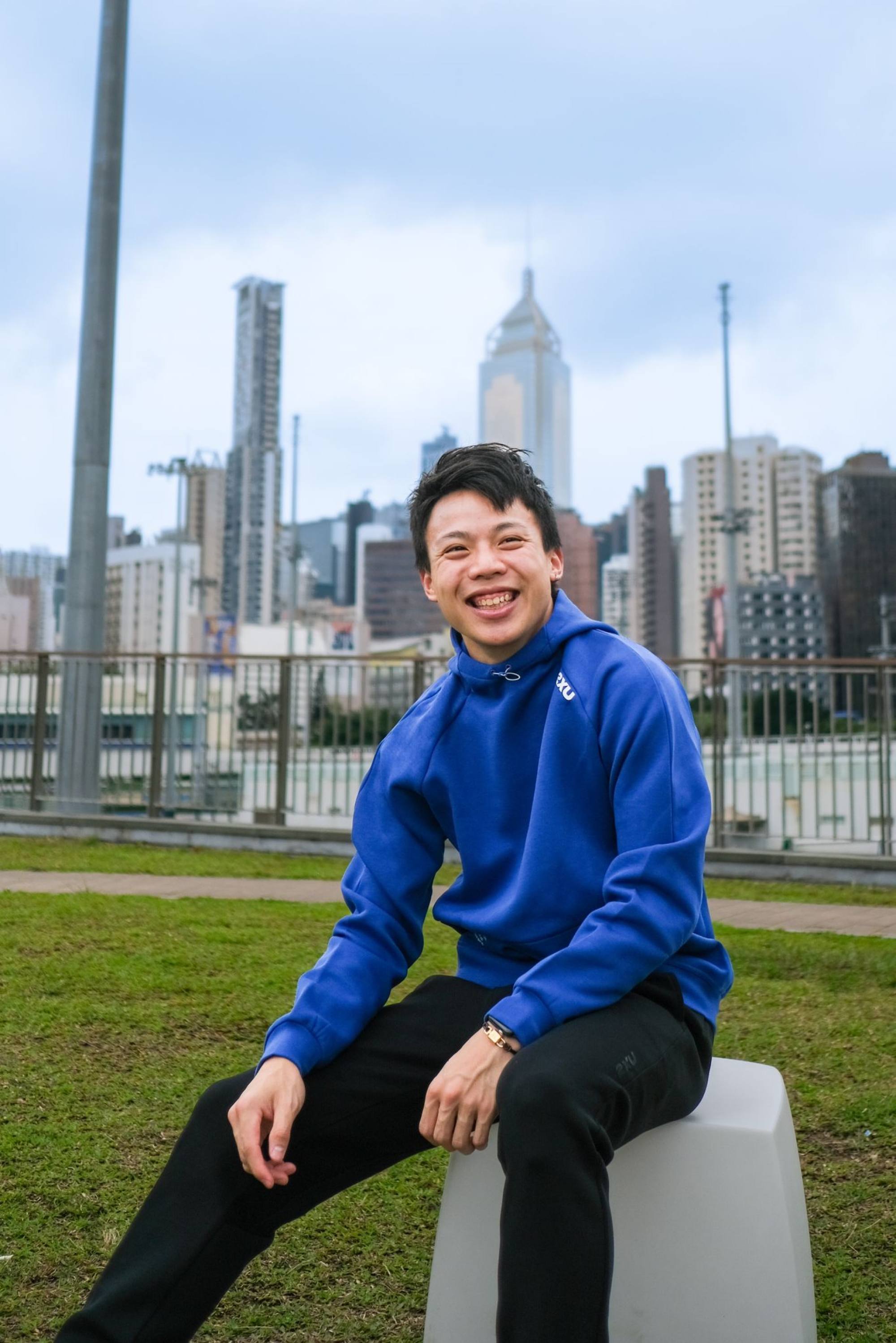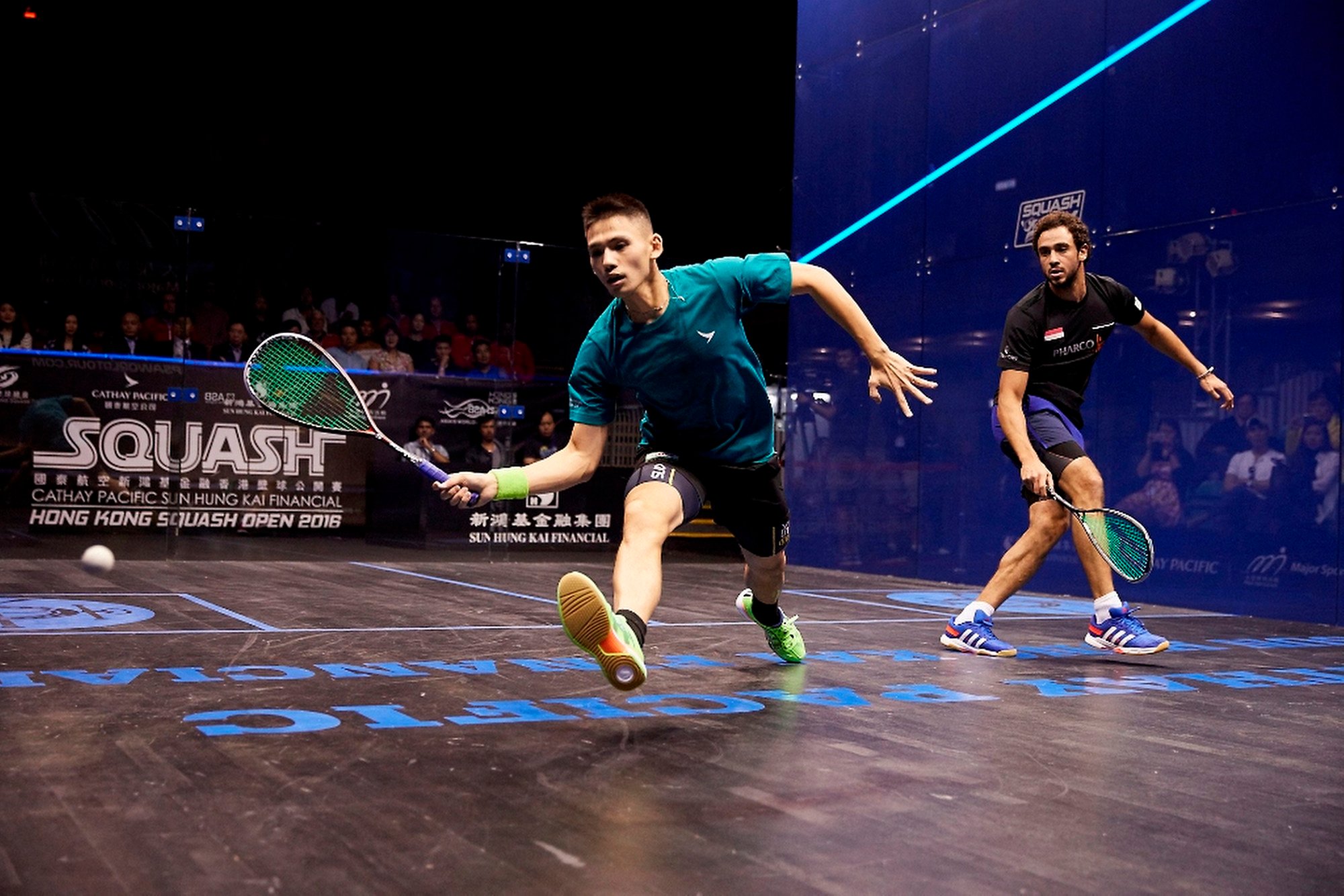
Alex Lau, Hong Kong’s top squash player, has learned a lot from a lifetime in the sport, but says he is still evolving
- The world top-50 player, who plays at the World Championships next month, says the game has made him mentally stronger
- He believes he will still be around for the next Olympics, but says he will need to keep evolving to keep the next generations at bay
One could easily imagine one is talking to a thinker, or even a philosopher, when speaking to the city’s top-ranked men’s squash player, Alex Lau Tsz-kwan.
The 28-year-old Hongkonger, who has spent his past 22 years – and counting – playing the sport that made him a world top-50 player, admitted most of his gains playing the now-Olympic sport are on the “mental” side.
“The first is learning how to live with failure, and then it is persistence and the way I think,” the two-time Hong Kong champion said. “It is because squash, personally, is a strategic game, a battle of wits for me.
“It’s like playing chess except you need to think of countermeasures in a flash. Does your opponent react in an expected manner? If he doesn’t, how much time do you need to alter your tactics?”
From those days of growing up and struggling with his academic results in Yuen Long, Lau has travelled far and around the world since becoming a Hong Kong Sports Institute athlete at the age of 16.
The world No 48, who will play at the World Championships in Cairo next month, said the past decade or so had taught him a lot.

“One cannot be conceited because who [on the tour] hasn’t won a match or two?” he said. “Even the world No 1 is ever improving; any complacency and you’ll be caught up.
“I hate the feeling of looking down on the others – even a player at No 500 will always be better than me in something, so I always learn from different players.
“I would just sit there and watch them doing boring, repetitive things for 10, 15 minutes. I like to observe, add my own things into what I learned and make it my own. That’s my perfect game plan.”
It was easier said than done, however, as Lau had to embrace the darkest days of his career when he lost out on the final spot of the Jakarta Asian Games squad because of, he said, complacency.
“I just came back with an international title in Cairns and I was really fit,” he said. “But I played poorly at the selection tournament [in Hong Kong] and was losing to almost everyone.
“At 23, I was still naive and immature; it was a heavy price as the Games happens once every four years. So, I felt great making the next squad automatically.”
It wasn’t smooth sailing for Lau at the Hangzhou Games, though, as even the team medal could not bury the sadness of missing out on an individual podium spot after coming in as a top-four seed.
“I lost in the men’s individual quarter-finals to teammate Henry [Leung Chi-hin],” he said. “You obviously want to win those missing medals.
“And can we also swap our team bronze for another colour? So, the 2026 Nagoya Games is a driving force for me. And then there’s the 2028 Olympic Games in Los Angeles – could my body still hold on at the age of 32?”
The veteran believed he will still be around in four years’ time but admitted he will need to keep evolving to keep the next generations at bay.
One thing he has yet to consider, however, is dropping his “unorthodox, risky and creative” approach on the court.
“It’s what I do best; it wasn’t intentional but I just want to use my hand to express my thoughts [at that particular moment],” Lau said. “The happiest thing about playing squash, for me, is that I can hit a ball exactly the way I want.
“And as much as results matter, sportsmanship and the ability to do as I plan [on the court] are even more important.”

Lau also said he hopes to rely on his experience and technique to limit his opponent’s choices so that he could “run less” on the court.
After cracking into the “unimaginable” top 50 in the world more than two years ago, Lau has been able to keep his place and reach a career-best No 41 for a couple of months last year.
Next up for the city’s soft-spoken top player is to reach the top 35 by the end of the next season at the latest, before trying to emulate the retired Max Lee Ho-yin, who reached a highest world ranking of 12 during his career.

 - Mike Chan.jpeg?itok=EQbwYm3R&v=1669714688)